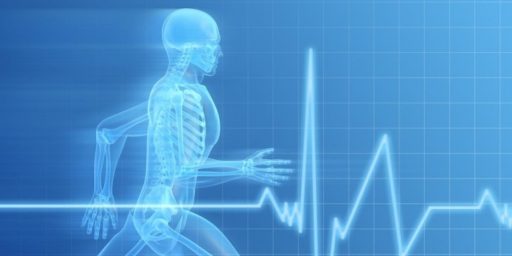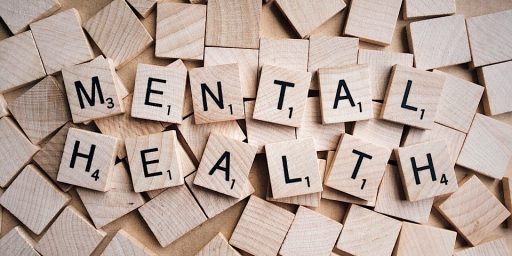Millions Have Rage Disorder
Stories like this one really tick me off: Study says millions have ‘rage’ disorder.
To you, that angry, horn-blasting tailgater is suffering from road rage. But doctors have another name for it — intermittent explosive disorder — and a new study suggests it is far more common than they realized, affecting up to 16 million Americans. “People think it’s bad behavior and that you just need an attitude adjustment, but what they don’t know … is that there’s a biology and cognitive science to this,” said Dr. Emil Coccaro, chairman of psychiatry at the University of Chicago’s medical school.
Or maybe you’re a really bad driver and it’s your fault he’s angry? You ever think of that, jerk?
The study was based on a national face-to-face survey of 9,282 U.S. adults who answered diagnostic questionnaires in 2001-03. It was funded by the National Institute of Mental Health. About 5 percent to 7 percent of the nationally representative sample had had the disorder, which would equal up to 16 million Americans. That is higher than better-known mental illnesses such as schizophrenia and bipolar disorder, Coccaro said. The average number of lifetime attacks per person was 43, resulting in $1,359 in property damage per person. About 4 percent had suffered recent attacks.
Only 43 incidents of getting unusually mad in a whole lifetime? These people clearly don’t drive in big cities.
The findings were released Monday in the June issue of the Archives of General Psychiatry. The findings show the little-studied disorder is much more common than previously thought, said lead author Ronald Kessler, a health care policy professor at Harvard Medical School. “It is news to a lot of people even who are specialists in mental health services that such a large proportion of the population has these clinically significant anger attacks,” Kessler said.
Four [Can’t you AP morons spell?! -ed.] a couple of decades, intermittent explosive disorder, or IED, has been included in the manual psychiatrists use to diagnose mental illness, though with slightly different names and criteria. That has contributed to misunderstanding and underappreciation of the disorder, said Coccaro, a study co-author. Coccaro said the disorder involves inadequate production or functioning of serotonin, a mood-regulating and behavior-inhibiting brain chemical. Treatment with antidepressants, including those that target serotonin receptors in the brain, is often helpful, along with behavior therapy akin to anger management, Coccaro said.
But, apparently, the average sufferer produces enough serotonin to do the trick all but incredibly infrequently.
Most sufferers in the study had other emotional disorders or drug or alcohol problems and had gotten treatment for them, but only 28 percent had ever received treatment for anger.
Huh? So, these are mostly drug addicts with other emotional disorders?
Jennifer Hartstein, a psychologist at Montefiore Medical Center in New York, said she had just diagnosed the disorder in a 16-year-old boy. “In most situations, he is relatively affable, calm and very responsible,” she said. But in stressful situations at home, he “explodes and tears apart his room, throws things at other people” to the point that his parents have called the police.
I have an alternate hypothesis involving insufficient spankings and other poor parenting skills. Unless the kid has his own firearms, there’s no reason parents should have to call the cops.






To paraphrase my comment at the original story: this is hardly news. The problem is a high testosterone – low serotonin combination, which can be addressed in two ways: raise the serotonin (antidepressants), or lower the testosterone (antipsychotics).
That latter surprises some people. Most antipsychotics have a side-effect of lowering T levels, so if you just label people “psychotic” you can fix the problem without ever understanding it. And that’s largely how the public interprets that behavior: psychotic. They’ll even call it that without prompting.
But the real problem is generally that your life sucks rocks. There’s nothing WRONG with the T levels you’re producing – unless of course you’re a woman. What’s wrong is that your life sucks, you don’t know how to fix it, and for the teenager… well, it’s simply not under his control.
The problem is rampant because people are almost universally unhappy. That doesn’t need a diagnosis, it needs a cultural revolution.
Actually it is 20 years of driving 55 that has pent up all that emotion
Uh-oh. I think I may have used up my quota.
And I thought that these people were just having temper tantrums like 2 year-olds! What happened to practicing adult self-control? Now it’s a disease? It’s stuff like this that makes a mockery of the mental health profession.
I’d also like to note that they use the same acronym – IED for “intermittent explosive disorder” as they do “improvised explosive device”. Coincidence? I think not!
This is also hardly a “new” phenomenon. Is anyone else here old enough to remember John McEnroe? How about Bobby Knight?
when i flip someone off, i excuse it as ” digital tourette syndrome”
“Intermittent explosive disorder” = Viagra(TM) for defense attorneys.
I think I might have to look into that testosterone-vs-serotonin thing mentioned by Caliban Darklock. I do, more frequently than I should, blow things out of proportion… but after the quick explosion, I’m back to normal again. (Of course, my wife can never just let it go once I have blown up, which only leads to more blowing-up, but anyway.) I don’t get road rage in situations where normal people wouldn’t get it, but little things do make me mad sometimes.
Hmm.